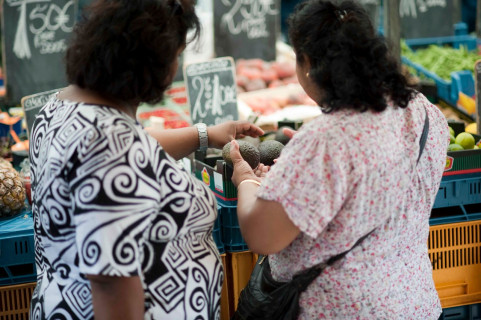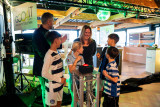Impacting residents with a lower SES in Jeruzalem, Amsterdam Oost
Positive Health in Jeruzalem

What is the goal of the project?
In the Positive Health project of the Amsterdam University of Applied Sciences (AUAS), research, policy and practice collaborate to develop sustainable interventions which contribute to the Positive Health of residents with lower socioeconomic status (SES) in Jeruzalem, a specific neighbourhood in Amsterdam-Oost .
Just like the other major cities in the Netherlands, Amsterdam has a relatively high proportion of residents with a low SES, based on people’s income, education, and occupation. Low SES is related to poorer self-reported health, more health problems and a lower healthy life expectancy. Therefore health promotion interventions and efforts usually address citizens with lower SES.
In the field of health promotion there is a growing awareness that the effects of health promoting interventions strongly increase when the target group is actively involved in goal definition, design and implementation processes. Such active engagement links up with current discussions about the concept of health. Health promotion increasingly aims to target the broader and more resource-based scope of ‘Positive Health’.Core to this concept are aspects of resilience and self-sufficiency and a more inclusive and strenght oriented vision on health. In addition, the concept of positive health is operationalized into six dimensions:
- bodily functions;
- mental functions and perceptions;
- spiritual/existential dimension;
- quality of life;
- social and societal participation;
- daily functioning.
In this project we use the term ‘Positive Health’ to refer to this conceptualization.
Who initiated the project and which organizations are involved?
Positive Health in Jeruzalem is part of the Amsterdam University of Applied Sciences (AUAS) research program Urban Vitality. In this project knowledge institutions (AUAS, Public Health Services Amsterdam), policy (local council of Amsterdam Oost), and practice (local welfare foundation Dynamo,local community care), work closely together. The Public Health Services Amsterdam and the Amsterdam University of Applied Sciences together initiated the project and will be responsible of its correct performance. AUAS students will support the researcher by providing practical assistance.
What is the next step?
The overall project (including the prior research) consists of four phases:
- consultation of residents with lower SES in Jeruzalem
- community asset mapping
- the co-creative design of (integral) interventions
- the implementation and evaluation of the interventions
So far, the meaning of Positive Health for citizens with lower SES is still unclear. Therefore we consult low-SES citizens in Jeruzalem on their perceptions concerning (positive) health, their strengths concerning the six dimensions of positive health and their needs. Elaborating on this prior research, we aim to develop community-driven interventions or strategies that contribute to the Positive Health of lower SES residents. For this purpose, we will organize a co-creative Intervention Mapping process in which residents closely collaborate with local partners (care, welfare, private parties, municipality). Together we will develop Positive Health Promotion interventions, which build on the individual strengths of residents as well as on community-assets, the needs of the target group, and the practices of local partners.




